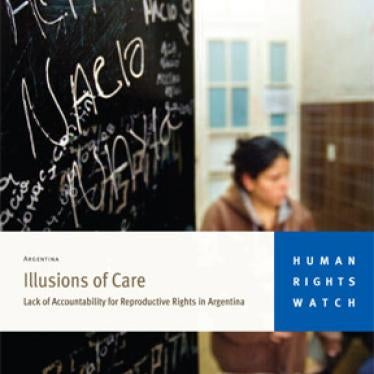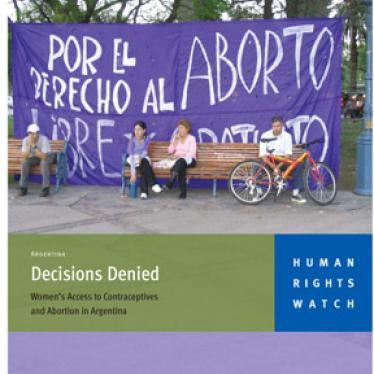A federal appeals court this month upheld a Texas law that requires a woman seeking an abortion to undergo a sonogram, forces doctors to describe that sonogram in detail to her and then requires that she wait 24 hours before she can undergo the procedure. Texas was one of five states to adopt mandatory sonogram laws last year.
Proponents insist these laws are about informed consent and making sure women have all the details about the procedure. They are not. The laws are about one thing only: erecting obstacles to abortion. In the service of that goal, they co-opt the doctor-patient relationship, jeopardize women's health and insert the government into women's most private decision-making.
The court overturned a District Court ruling that the law impinged on doctors' free-speech rights by making them "advance an ideological agenda with which they may not agree, regardless of any medical necessity, and irrespective of whether the pregnant women wish to listen."
Informed consent for any medical procedure is critically important. As described by the United Nations committee that interprets the agency's International Covenant on Economic, Social and Cultural Rights, the human right to health includes the right to complete and accurate health information. When we walk into a doctor's office, we have a right to be fully informed about the options for care and the associated risks, to ask questions and get answers, and to know that the doctor is committed to acting in our best interest.
But when the state compels a doctor to describe a patient's sonogram to her in detail and place it in front of her before an abortion can be performed — a practice with no medical necessity but a clear intent to shame a woman out of proceeding with an abortion — that law undermines the principles of self-determination and patient autonomy that are the foundation of informed consent.
The ideologically motivated law goes further in corrupting the doctor-patient relationship. Under limited circumstances, such as when the pregnancy is the result of rape, doctors are excused from describing the sonogram or attempting to make the woman listen to any cardiac activity (another portion of the law). However, the rape exception only applies when the woman certifies that the crime was reported to police or that she "reasonably believe[s] that doing so would put [her] at risk of retaliation resulting in serious bodily injury."
Reporting to the police should never be a condition of receiving medical care. Women, particularly economically vulnerable women, may fear that reporting a rape not only risks retaliation from their assailant but other consequences, including exposure of immigration status, loss of child custody, eviction and loss of a job. In addition to fear, women must contend with the stigma associated with rape. They may also be reasonably skeptical that reporting the rape will result in justice.
Eroding the trust that defines the doctor-patient relationship can have far-reaching consequences for women's health. Shaming patients in the doctor's office alienates them from the medical care system. The breach of trust mandated by this Texas law can make women wary of the health system as a whole.
With respect to abortion, this law may lead women to seek unsafe, unregulated alternatives. In Argentina, Nicaragua and elsewhere, Human Rights Watch has documented the results when women feel they have no recourse to the formal medical system: self-induced abortions, with knitting needles and knives, resulting in infections, hemorrhaging and sometimes death.
Women deserve complete and accurate information about abortion before undergoing the procedure. Ideologically motivated lectures and forced waiting periods compromise and belittle the process. The law treats women as though they are less capable than men of making decisions about their own health by imposing specific hurdles to obtain a medical procedure needed only by women.
The decision about whether to continue or to terminate a pregnancy is complex and intensely personal. Women put a great deal of thought into it before, during and after visiting the doctor. They think about their health, their families, the moral significance of pregnancy within their own belief systems, the responsibility of childbearing and all possible alternatives, the direction of their lives and any number of other profound issues.
They may discuss it with family members, spiritual advisors or friends, or they may discuss it only with their doctors. They do all of this already, in privacy and without the intrusion of state government. Women do not need the government's hand-holding — or its arm-twisting.








